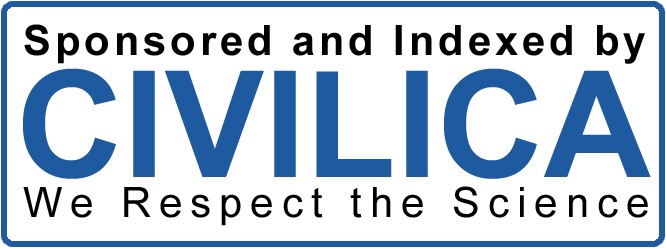The Impact of Organizational Conscientiousness on the Tendency to Leave the Service among Iraqi Physical Education Teachers: The Mediating Role of Organizational Commitment
Keywords:
Organizational Conscientiousness, Tendency to Leave the Service, Organizational Commitment, Iraqi Physical Education TeachersAbstract
The aim of this study was to investigate the impact of organizational conscientiousness on the tendency to leave the service among Iraqi physical education teachers, with the mediating role of organizational commitment. This research is applied in nature, and from the perspective of data collection, it is descriptive-correlational. The statistical population consisted of all physical education teachers across Iraq, totaling 25,642 individuals. Given the distribution of physical education teachers throughout the country, a sample of 384 teachers was selected through multi-stage cluster sampling. Data were collected using standardized questionnaires, including the Organizational Conscientiousness Questionnaire by Naeimi (2013), the Job Leaving Questionnaire by Moghimi (2010), and the Organizational Commitment Questionnaire by Allen and Meyer (1990). The face and content validity of the questionnaires were confirmed by the academic supervisor, and their reliability was assessed through Cronbach’s alpha coefficients, which were calculated as 0.93 for organizational conscientiousness, 0.91 for the tendency to leave the service, and 0.92 for organizational commitment. Data analysis was conducted using correlation coefficients, multiple regression analysis, and structural equation modeling. All computations were performed using PLS and SPSS software. The results indicated that organizational conscientiousness has a positive and significant effect on organizational commitment, explaining 20.07% of its variance. Furthermore, organizational conscientiousness has a negative and significant effect on the tendency to leave the service, accounting for 33.40% of its variance. Organizational commitment also has a negative and significant effect on the tendency to leave the service, explaining 33.87% of its variance.
Downloads
References
1. Babakhanloo A, Babakhanloo Z. Predicting Job Commitment based on Organizational Justice Considering the Mediating Role of Conscientiousness in Business. Dynamic Management and Business Analysis. 2023;1(1):24-32. doi: 10.22034/dmbaj.2024.2023024.1023.
2. Mehdad A, Minaeian S. The Mediating Role of Achievement Motivation in the Relationship between Conscientiousness and Role Performance and Extra-Role Performance. Career and Organizational Counseling. 2019;12(43):73-90.
3. Ng TWH. The incremental validity of organizational commitment, organizational trust, and organizational identification. Journal of Vocational Behavior. 2015;88:154-63.
4. To WM, Huang G. Effects of equity, perceived organizational support and job satisfaction on organizational commitment in Macao's gaming industry. Management Decision. 2022;60(9):2433-54. doi: 10.1108/MD-11-2021-1447.
5. Zulkifli Z, Hamzah H, Hamzah Z, Arif M, Hamsal H, Arsad S. Motivation and Organizational Commitment on Loyalty and Islamic Banking Employee Performance. Al-Intaj Jurnal Ekonomi Dan Perbankan Syariah. 2024;10(2):287. doi: 10.29300/aij.v10i2.4934.
6. Kim T-S, Hur C-y. A Study on the Effects of KTX Driver's Person-Environment Fit on Job Satisfaction, Organizational Commitment, and Turnover Intention. Journal of the Korean Society for Railway. 2012;15(6):645-53. doi: 10.7782/jksr.2012.15.6.645.
7. Kim JS, Song HJ, Lee CK. Effects of corporate social responsibility and internal marketing on organizational commitment and turnover intentions. International Journal of Hospitality Management. 2016;55:25-32. doi: 10.1016/j.ijhm.2016.02.007.
8. Parker RJ, Kohlmeyer JM. Organizational justice and turnover in public accounting firms: a research note. Accounting, Organizations and Society. 2005;30(4):357-69.
9. Zen A, Ali H, Sastrodiharjo I, Hidayat WW. The Effect of Organizational Commitment, Organization Funding, and Intervening Organizational Performance Towards Organizational Sustainability (On Islamic Boarding). East Asian Journal of Multidisciplinary Research. 2024;3(2):607-16. doi: 10.55927/eajmr.v3i2.8290.
10. Drilia SC. The Impact of Internal Control, HR Competence, and Organizational Commitment on Financial Report Quality Regional Government Organization, With IT Utilization as a Moderator (Study on Regional Government Organizations in Southern Sumatera). International Journal of Asian Business and Management. 2025;4(2):177-88. doi: 10.55927/ijabm.v4i2.155.
11. Barmaki H, Ghasemi A, Rafati M. Investigating the Effect of Servant Leadership on Employee Job Turnover through Mediation of Organizational Commitment and Staff Loyalty (Case Study: Managers of Sepah Bank Branches in Mashhad). Psychological Researches in Management. 2022;8(2):243-64.
12. Hassanpour MK, Chong CW, Chong SC, Okour M, Samadi B, Tan XY. HR Practices and Turnover Intention; The Mediating Role of Organizational Commitment in Tehran: A Cross-Sectional Study. F1000research. 2022;10:1130. doi: 10.12688/f1000research.73351.2.
13. Antony DAJ. Disentangling the Relationships Between Talent Management, Organizational Commitment and Turnover Intention: Evidence From Higher Educational Institutions in India. Global Business and Organizational Excellence. 2023;43(2):176-201. doi: 10.1002/joe.22231.
14. Widodo T, Wening N, Nakuloadi H, Rustiana E, Saifuddiin MR. Work Engagement in Generation Z Employees: Organizational Commitment, Perceived Organizational Support and Work Meaningfulness. JLSDGR. 2025;5(2):e02610. doi: 10.47172/2965-730x.sdgsreview.v5.n02.pe02610.
15. Oktavianti A, Safaria S. The Effect of Motivation and Organizational Commitment on Turnover Intention With Job Satisfaction as an Intervening Medium (Case Study on Employees of PT Permodalan Nasional Madani Jakarta Branch). Formosa Journal of Sustainable Research. 2024;3(11):2459-78. doi: 10.55927/fjsr.v3i11.12441.
16. Hefny L. The relationships between job satisfaction dimensions, organizational commitment and turnover intention: the moderating role of ethical climate in travel agencies. Journal of Human Resources in Hospitality & Tourism. 2021;20(1):1-23. doi: 10.1080/15332845.2020.1821425.
17. Orgambidez A, Almeida H, Shrestha M, Dangol R, Yusnita N, Gursida H. Supervisor Support and Affective Organizational Commitment: The Mediator Role of Work Engagement Conscientiousness and Motivator Factors: Can They Contribute to Each Other Among Teachers from Technical and Vocational Education and Training of Nepal? ANTECEDENTS OF INTENTION TO LEAVE ORGANIZATION: EVIDENCE FROM FINANCIAL INSTITUTION. West J Nurs Res. 2019;9(1):117-37. doi: 10.1177/0193945919852426 10.32674/jise.v9i1.1898 10.17512/pjms.2022.26.1.23.
18. Yasin R, Jan G, Huseynova A, Atif M. Inclusive leadership and turnover intention: the role of follower–leader goal congruence and organizational commitment. Management Decision. 2023;61(3):589-609. doi: 10.1108/MD-07-2021-0925.
19. Özkan AH, Folgado H. The relationships between turnover intention, job satisfaction and organizational commitment in sports leadership: A meta-analysis study. Pamukkale J Sport Sci. 2022;13(1). doi: 10.54141/psbd.975239.
20. Nikkhah Farhani Z, Reyhani M. The moderating role of organizational commitment and job satisfaction in the impact of internal marketing on the intention to leave service of employees of the Sports and Youth Departments of North Khorasan province. Human Resource Management in Sport. 2019;7(1):151-67.
21. Hotama VA. The Effect of Work-Life Balance, Self-Esteem, and Work Motivation, on Organizational Commitment of Gen Z Employees. International Journal of Research and Innovation in Social Science. 2025;IX(IV):738-50. doi: 10.47772/ijriss.2025.90400055.
22. Han SJ, Han JW, An Y-S, Lim S-H. Effects of Role Stress on Nurses' Turnover Intentions: The Mediating Effects of Organizational Commitment and Burnout. Japan Journal of Nursing Science. 2014;12(4):287-96. doi: 10.1111/jjns.12067.
23. Shahnawaz MG, Goswami K. Effect of Psychological Contract Violation on Organizational Commitment, Trust and Turnover Intention in Private and Public Sector Indian Organizations. Vision. 2011;15(3):209-17. doi: 10.1177/097226291101500301.
24. Karinadewi N, Martdianty F. A Model of Meaning of Work, Work Engagement, Organizational Commitment and Turnover Intention in Jakarta and Bali Hotel Employees. 2021:47-53. doi: 10.17501/23572612.2020.5104.
25. Akhtar MW, Shabir A, Safdar MS, Akhtar MS. Impact of Emotional Intelligence on Turnover Intentions: The Role of Organizational Commitment and Perceive Organizational Support. Journal of Accounting & Marketing. 2017;06(04). doi: 10.4172/2168-9601.1000259.
26. Leliga FJ. Analysis of the Influence of Organizational Commitment, Organizational Citizenship Behavior, Turnover Intention on Employee Happiness, and Employee Productivity at Flash Fitness Surabaya. Int J Sci Bus. 2021;40(1):80-91. doi: 10.58970/IJSB.2445.
27. Choi S. Diversity in the US Federal Government: Diversity Management and Employee Turnover in Federal Agencies. Journal of Public Administration Research and Theory. 2009;19(3):603-30. doi: 10.1093/jopart/mun010.
Downloads
Published
Submitted
Revised
Accepted
Issue
Section
License
Copyright (c) 2025 Hussein Ali Abdyasir (Author); Mohammadreza Esmaeili; Hatem Flayyih Hafedh Al-Shabbani, Davood Nasr Esfahani (Author)

This work is licensed under a Creative Commons Attribution-NonCommercial 4.0 International License.



